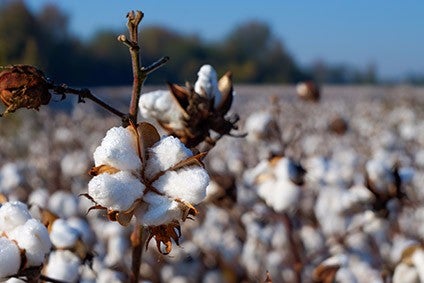
Greek cotton ginning mill Thrakika says a recent drive to increase production of higher quality cotton has led to a dip in output during 2018.
Thrakika took part in the Certified Sustainable FiberMax (CSF) programme for a fourth year, using BASF FiberMax cotton which is “worldwide recognised for its superior fibre quality and having managed to create a separate category of cotton marketing.”
The CSF programme adds value to the final product by promoting the cotton produced by the FiberMax varieties through a socially sound, economically viable and environmentally friendly production method.
The implementation, control and certification is carried out by third-party organisations, namely AIFORIKI and QMSCERT. One of the advantages for brands utilising cotton produced under the CSF programme is that it is traceable. The third-party company maps all the parcels and then registers and posts all data on the CSF application, according to the GDPR regulation (General Data Protection Regulation).
The CSF program is at the top of the Thrakika Ginning Mills’s efforts to produce higher value cotton, promoted as Cotton+.
But in its last annual report Thrakika reveals the number of participating farmers in the CSF programme fell to 236 from 270 a year earlier. As a result the farmed area fell against last year, as did the cotton bales from 9359 to 9311 and the amount of ginned cotton, from 2092 tons to 2086 tons.

US Tariffs are shifting - will you react or anticipate?
Don’t let policy changes catch you off guard. Stay proactive with real-time data and expert analysis.
By GlobalDataA spokesperson for the company said the fall had come from a focus on selecting “the most qualitative participants” in 2018.
“As a result, the participating cotton producers were fewer, but the production of ginned cotton was of better quality. Furthermore, 2018 was a very tough year for the cotton production in this part of Greece, as farmers faced a big attack of the helicoverpa armigera (insect cotton bollworm),” the spokesperson adds.



